The blood-stained trade that connects terrorism, armed conflict, narcotics and human rights violations.

From Al-Qaeda, to Boko Haram, to ISIS, and beyond, what interlinks the twin towers in New York city, coffee shops in Sydney, nightclubs in Paris and Orlando, airports in Istanbul, girls’ schools in Nigeria, and restaurants in Israel and Syria?
These have been ‘success’ stories of terrorist attacks.
Terrorist groups require manpower and resources; have you ever wondered about the source of these renewable resources? There is a global revolving door between the operative networks involved in the illegal trade of wildlife, arms, narcotics, and human trafficking. Terrorism utilises endangered animals as trade commodities for promoting violence and fear with the ultimate goal of eliminating entire cultures. But first, let me share with you the road that led me to seek to disentangle this linkage. I spent four months collecting data to quantify the impact of various wildlife management policies on the probability of hybridisation between black and blue wildebeests in South Africa. During this time, I extracted DNA samples by biodarting animals from a low-flying two seater helicopter or the top of a baki. Because of the extreme South African heat, handling of wildlife is permitted only during the early hours of the day. Luckily, I was able to consume large amounts of coffee. At the end of a fortnight-long expedition, my research assistant, Theo, and I headed back with our samples to the genetics lab. As we left the private ranch in Mpumalanga, he asked me if I was interested in seeing “something”. I was keen.
Denne historien er fra October 2016-utgaven av Sanctuary Asia.
Start din 7-dagers gratis prøveperiode på Magzter GOLD for å få tilgang til tusenvis av utvalgte premiumhistorier og 9000+ magasiner og aviser.
Allerede abonnent ? Logg på
Denne historien er fra October 2016-utgaven av Sanctuary Asia.
Start din 7-dagers gratis prøveperiode på Magzter GOLD for å få tilgang til tusenvis av utvalgte premiumhistorier og 9000+ magasiner og aviser.
Allerede abonnent? Logg på
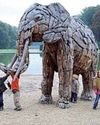
Why Children Are Needed To Help Save The World
On my very first day in India, I encountered many marvelous new customs not practiced in the United States, my home country. But the most curious by far involved trees. Here and there, alongside the roaring streets of Mumbai were rings of marigold wreathed around twisting banyan trunks like dried rays of afternoon sunlight…
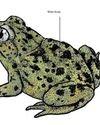
Who's Who?
Fact: all toads are frogs, but not all frogs are toads! Let’s unpack this...
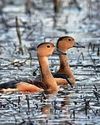
The Sea Raptor
The White-bellied Sea Eagle Haliaeetus leucogaster is one of the most common raptors along the Indian coastline. Nevertheless, the sight of this soaring, broad-winged, white and black bird of prey is nothing less than majestic
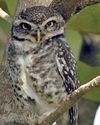
Bringing Up Bob Hoots.
While we were visiting a friend’s farm in the village of Yelachetty, near Bandipur Tiger Reserve, we found Spotted Owlets nesting on the tiled roof… and one of the chicks on the kitchen floor!

Yala, Land Of The Leopard
Yala is not only Sri Lanka’s second-largest, but also the most-visited national park in the island nation.
The Wizards Of Oz!
Australia is not only a country, but also a continent. The land down under, cut-off from the rest of the world has an abundance of unique species of native animals, birds, reptiles, insects and plants.
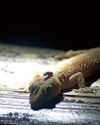
Scales & Tails
I was really excited and looking forward to the workshop on reptiles and amphibians at Nature’s Nest in Mollem, Goa, between June 24 and 26, 2017. It was my opportunity to meet renowned herpetologist Varad Giri.
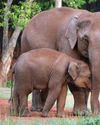
Big, Brilliant And Endangered
When one thinks of elephants, the first word that probably comes to mind is BIG! But elephants, while they may be the largest creatures on land, are not just big and powerful, they’re wise and sensitive as well. Recent scientific studies have established that they are among the most intelligent animals in the world.
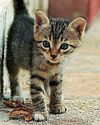
Earth Manners
Everyday habits matter! Let’s be kind to the planet, animals and ourselves!
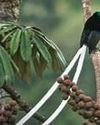
World Scan
CHINA’S IVORY TOWNAn explosive investigation by the Environmental Investigation Agency has revealed how criminal gangs originating from an obscure town in southern China have come to dominate the smuggling of ivory tusks poached from African elephants.